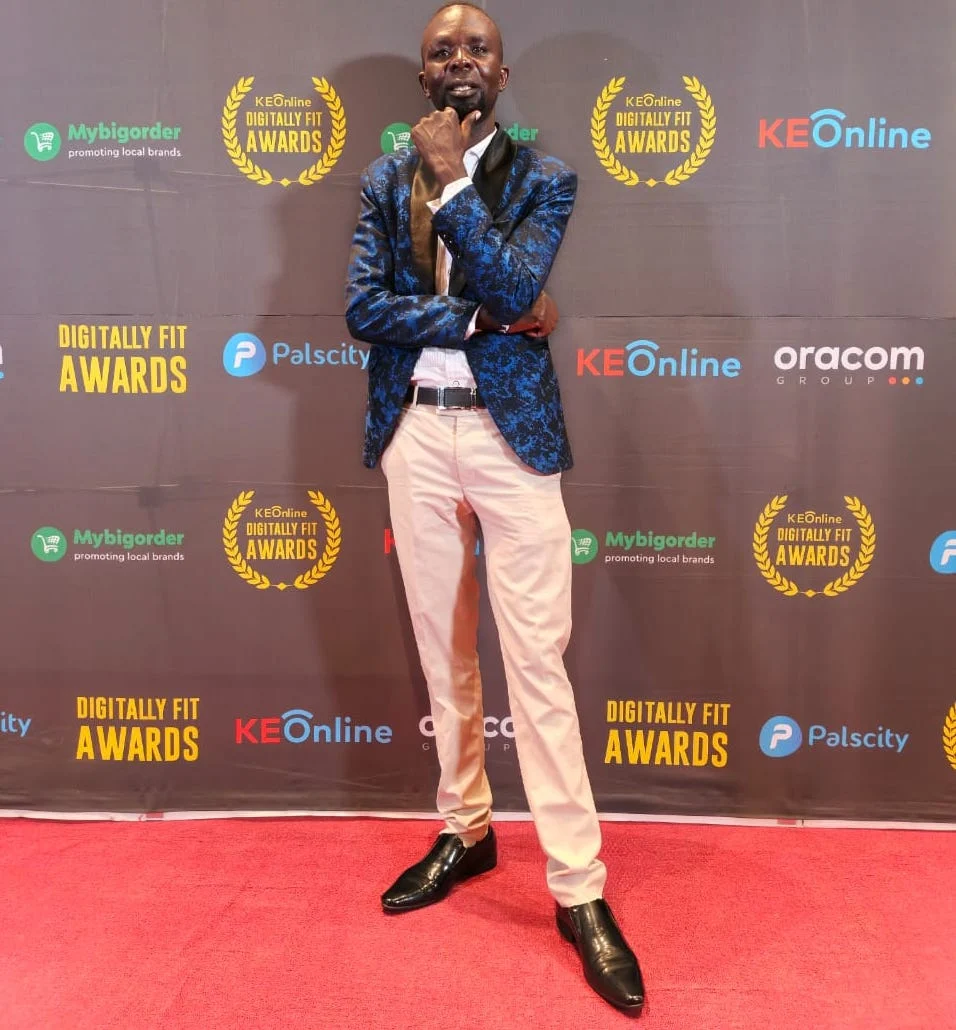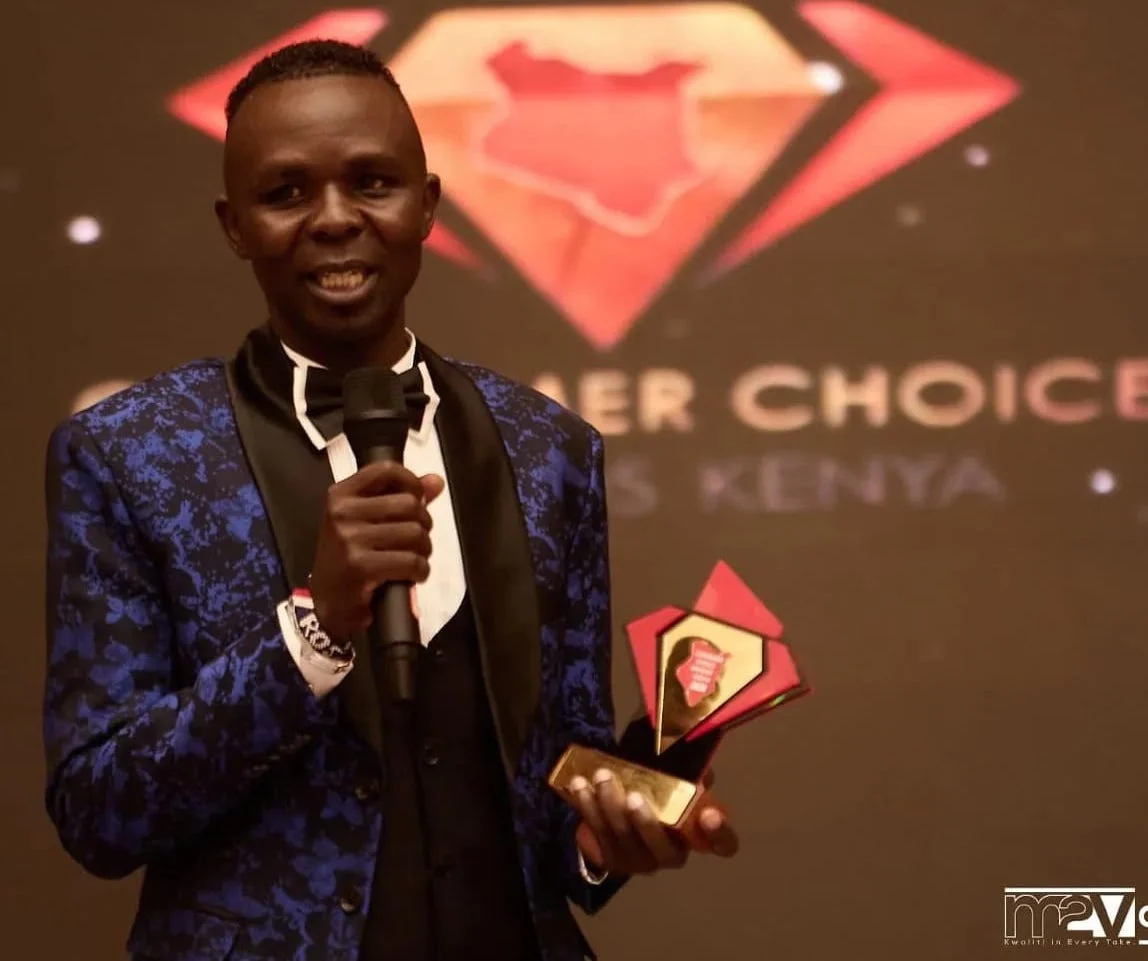The story of Roston Maliazo, founder & CEO of Prime House Interiors, is about entrepreneurship against odds in a harsh business environment. When he started, interior design in Kenya was seen as a luxury. He would go months without clients, skipped meals, and even questioned if he’d made a mistake leaving employment. But he pushed through long nights, financial sacrifice, and bureaucratic hurdles to build one of the country’s leading design firms.
What makes Roston’s journey compelling is his grit, resilience, and the art of creating something from almost nothing. Today, more than a decade later, he’s proof that design can be more than aesthetics — it can be a tool for dignity, wellness, and affordable living.
BusinessToday talked to Roston Maliazo in a wide-ranging interview in which he opens up about this first steps in business, his inspirations — the occasional throwing-in the towel moments — and what it feels like running a business in Kenya, where the mortality rate of startups is very high.
BT: When you started Prime House Interiors, what was life like for you on a daily basis?
ROSTON: It was anything but easy. The business started very low, and getting a single client felt like climbing a mountain. At that time, interior design was not widely understood in Kenya — most people thought it was a luxury, so convincing them to believe in what I was communicating was a real struggle.
Sometimes it would take three to six months just to land one client. Imagine working day after day, marketing yourself, making calls, walking into offices, but coming home with nothing to show for it. Sleepless nights were wondering if I had made a mistake, and very long days spent chasing opportunities that often never materialised.
The sacrifices were real. I had to survive with little, cut down personal comforts, and pour everything into keeping the dream alive. But those few clients I got in the early days became the foundation of everything — they gave me a chance to prove myself, and little by little, the belief grew.
BT: What problem were you trying to solve with Prime House Interiors and what made you believe you could do it?
ROSTON: Too many people were living and working in plain, uninspiring spaces. Homes felt empty, offices felt dull, and many didn’t realise that design could completely change how a space makes you feel. What pushed me was my deep inspiration from beautiful spaces. Every time I walked into a well-designed room, I felt the difference — the peace, the energy, the pride it brings. I wanted to give that same experience to people who had never imagined it was possible for them.
I believed I could do it because I had both the passion and the eye for design. Even with little, I knew how to bring out beauty, functionality, and dignity. That belief — that everyone deserves a space that inspires them — gave me the courage to start, even when few people understood what interior design was all about.
BT: Can you describe one of the toughest moments in the early days? What kept you going?
ROSTON: One of the toughest moments was when I made the bold decision to quit my casual employment and venture fully into interior design. It was a leap of faith — I had no stable income, no savings to cushion me, and clients were very hard to come by. Suddenly, the security of a small but steady pay cheque was gone, and every day became about survival.
There were moments I doubted myself deeply. I remember wondering whether I should go back to employment. Money was short, and sometimes I had to choose between basic needs and pushing the business forward.
> Inside Nairobi’s Multi-Million Printing Economy Operated By Ordinary People
What kept me going was my passion for creating beautiful spaces and the conviction that if I gave up, I’d always regret not trying. I reminded myself that comfort zones don’t build dreams. Each small project I landed — even if it was just one client in months — reignited my belief that I was on the right path. I overcame by staying disciplined, cutting expenses to the bare minimum, and pouring everything into building trust with clients. Those hard days became my foundation, and they taught me resilience that still carries me today.
BT: What was the business climate like in Kenya at that time, and how did it affect you as a new entrepreneur?
ROSTON: Back then, registering a business in Kenya was a lengthy process — it could take up to a month just to get a business registration certificate. I remember going to the registration offices in town, behind Harambee House, and finding long queues. Outside, there were brokers promising to “speed up” the process for a fee, which made the experience even more frustrating for a new entrepreneur with little money.
As someone just starting out, that environment felt discouraging. You already have the pressure of building a new business, and now you’re spending days in lines instead of serving clients. But I told myself that if I wanted to build something legitimate and lasting, I had to go through the process the right way. So I endured the queues, ignored the shortcuts, and waited it out.
Looking back, those early struggles taught me patience and resilience. They also made me appreciate how far Kenya has come in digitizing some of these services today.
BT: How did you land your first major project? Was there a turning point that made you feel, “Now I’m in business”?
ROSTON: My first major project came after many months of small, scattered jobs. It was a corporate office that needed a full redesign. I still remember walking into the pitch meeting feeling nervous but prepared — I carried samples, sketches, and most importantly, passion.
They gave me a chance, and that project became the turning point. Once the work was completed, the transformation was so visible that word began to spread. Clients from different sectors started reaching out, and referrals began flowing in. It wasn’t just about money — it was the validation that interior design had a place in Kenya, and that people were willing to invest in it if you delivered value.
 Roston Maliazo: The biggest sacrifice was comfort. (Photo: Courtesy)
Roston Maliazo: The biggest sacrifice was comfort. (Photo: Courtesy)
BT: How did you manage money in the beginning? Did you take loans, bootstrap, or rely on savings?
ROSTON: At the start, I bootstrapped everything. I didn’t have access to big loans or investors, so I relied on the little I had and reinvested every shilling back into the business. There were times when I had to make tough choices — sometimes using personal money for materials, or delaying payments to myself so that workers and suppliers could be paid first. I ran lean, avoided unnecessary expenses, and tried to stretch every resource as far as possible.
Looking back, that discipline shaped my approach to business. It taught me the value of managing cash flow carefully and always putting the client’s needs first, even if it meant personal sacrifice in the short term.
BT: What sacrifices did you personally make to grow Prime House Interiors?
ROSTON: The biggest sacrifice was comfort. I gave up the security of a salary, the luxury of regular meals out, and even the chance to relax on weekends. Every shilling and every hour went into building the company.
I also sacrificed time with friends and family. There were days I was so focused on work that social life almost disappeared. But I kept reminding myself — this was a season for building. If I pushed through, the rewards would come later.
BT: What advice would you give to young Kenyans who want to start out something?
ROSTON: My advice is simple: start small, but start. Don’t wait until everything is perfect — because it never will be. If you have a dream, take the first step with what you have. Be prepared for sacrifice. Entrepreneurship is not easy; there will be tough days. But those tough days are part of the process. Stay focused, stay disciplined, and remember that consistency beats speed.
And most importantly, build with integrity. In business, reputation is everything. If you deliver good work and treat people with respect, opportunities will come. It may take time, but every small win builds the foundation for something bigger.
> Hellen Nalianya’s Shift From Accounts to Technology Led to Instant Career Success
